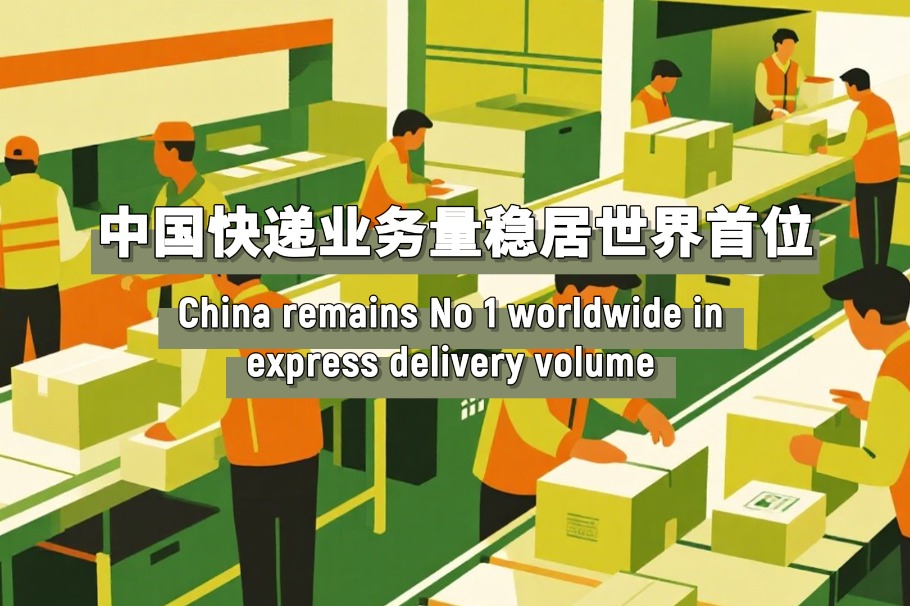Unified national market a new growth launchpad


What defines the world's largest economies is the integration of different systems and sectors. Accordingly, China has been taking measures to create an integrated national market to ensure companies and consumers feel as if provincial borders don't exist. The move is not only to align policies but also to fuel new growth points at home and beyond.
Imagine a small manufacturer in Xiamen, Fujian province, selling its products in Beijing without having to negotiate local rules or other barriers. That is what a unified system with common standards, streamlined approvals and a single nationwide regulatory rulebook is going to do. It will also lower costs, boost competition and promote innovation.
A key goal of the move is to ensure fair, high-quality competition by reducing barriers for non-local enterprises. In the past, the preference for local businesses could, at times, limit broader participation. Today, cities like Guangzhou, Guangdong province, are setting a new tone. A company based in Hangzhou, Zhejiang province, recently won a 3-million-yuan ($417,020) bid for the city's promotional film through an open, competitive process, thanks to a level playing field. This shift toward greater institutional fairness will positively impact the economy.
Another goal of the move is to reduce red tape. Earlier, establishing a company used to take several weeks in some cities. But because of reforms like the July 2024 "efficient one-stop business process", businesses in Guangzhou can now complete the entire process in a single day. While Guangzhou's Haizhu district has merged multiple approval requirements into a single form, Guilin, Guangxi Zhuang autonomous region, has simplified the registration and capital requirements. In fact, most new registrations can now be completed online, as the focus is on making government services more efficient, transparent and conducive to businesses' growth.
But China isn't stopping at registration reforms. It is advancing "Internet-Plus government services", rolling out cross-provincial licensing, and standardizing the company migration procedure. Pilot projects in 10 provinces and municipalities show what a truly nationwide market would look like: companies shifting operations or opening branches without encountering local red tape. Even branches can now share the parent company's license, which would relieve them of unnecessary paperwork.
A unified national market doesn't mean isolating the Chinese market; instead, it means aligning domestic and international standards and rules. For example, the central authorities have reduced the foreign investment "negative list" from 31 to 29 items and fully opened up the manufacturing sector. Also, the government is further opening up the telecom, internet, healthcare, educational, cultural and some other sectors, signaling that foreign investors are welcome to invest in China as long as they meet the unified standards. China is also inviting international certification bodies to make compliance easier for foreign players.
This is not only about saying "we're open" but also about making sure companies around the world can operate in the Chinese market without having to navigate a regulatory labyrinth.
The Central Committee for Financial and Economic Affairs' meeting in July emphasized the importance of "five unifications and one opening-up" for promoting high-level and effective opening-up. The first priority of the exercise is to harmonize fundamental market institutions so that rules are consistent nationwide, and the second is to standardize government practices to promote fair competition and create a level playing field.
This approach suggests China recognizes that its greatest economic assets are scale and its ability to act at scale. With more than 100 million market entities and the world's most comprehensive industrial system, China can marshal resources like any other large, efficient economy. As always, ensuring consistent national standards and reducing local variations are key to realizing success.
A unified market does not only help domestic companies; it also promotes healthy competition, better resource allocation and industrial upgrading. By guiding capital and talents toward globally competitive industries, China is trying to build a more resilient and innovation-oriented economy, and making sure Chinese companies become prominent global players by adapting to changes and improving their performance.
Digital platforms are also breaking down geographical barriers, which previously hampered the flow of goods, services and information, and facilitating real-time data sharing by taking advantage of cross-border e-commerce and supply chains to meet consumers' demand in real-time with uniformly priced goods.
China's endeavor to build a unified national market is a strategic initiative to boost high-level opening-up. For domestic entrepreneurs, it means fewer barriers and more opportunities, and for global investors, it promises clearer rules and easier entry into the Chinese market.
In short, China is building a level playing field for both domestic and foreign business, which in turn will facilitate the development of a unified national market, because it is the best way to strengthen the domestic economy.
The author is a research fellow at the National Academy of Economic Strategy, Chinese Academy of Social Sciences. The views don't necessarily reflect those of China Daily.
If you have a specific expertise, or would like to share your thought about our stories, then send us your writings at opinion@chinadaily.com.cn, and comment@chinadaily.com.cn.


































